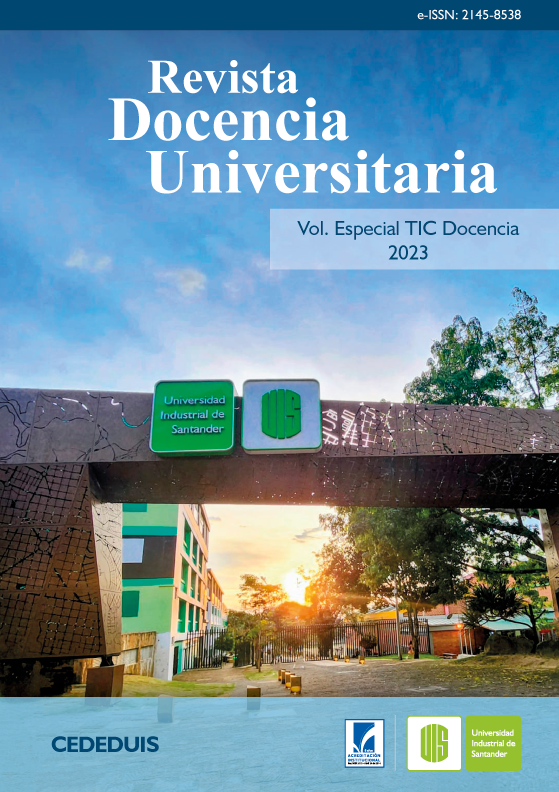Memory
Published 2024-04-11
Keywords
- laboratory,
- Behavioral economics,
- Gamification,
- Applied mathematics,
- Computer game
How to Cite
Palacio García, L. A. . (2024). Negotiation games. Experiments for citizenship formation. Revista Docencia Universitaria, 50–52. https://doi.org/10.18273/revdu.vesp1-2023017
Copyright (c) 2023 Revista Docencia Universitaria

This work is licensed under a Creative Commons Attribution 4.0 International License.
Abstract
The experience consists of using negotiation games as a pedagogical tool in the classroom to improve the learning of economic theory concepts. It seeks to complement traditional lessons with empirical contrasts and to encourage the discussion of moral dilemmas in digital environments. This proyect is applied in the context of teaching economic theory in higher education, especially in Microeconomics classes.
Downloads
Download data is not yet available.
References
- Emerson, T. (2014). Anyone? Anyone? A guide to submissions on classroom experiments. The Journal of Economic Education, 45(2), 174–179
- Núñez, S. N., Zambrano, A. M., Palacio, L. A. y Maldonado, J. F. (2020). Juegos de negociación: estrategia para formación de competencias ciudadanas en universitarios. Educación y Educadores, 23(2), 291-308. https://doi.org/10.5294/edu.2020.23.2.7
- Palacio, L., & Cortés, A. (2020). Conflicto 2×2: Una lección de teoría de juegos en el laboratorio. Cuadernos Económicos Del ICE, 1(99), 171–187
- Palacio, L., Saravia, I., & Vesga, M. (2017). Juegos en el salón de clase: El mercado de los limones. Revista de Economía Institucional, 19(36), 291–311. https://doi.org/10.18601/01245996.v19n36.11
- Stodder, J. (1998). Experimental moralities: Ethics in classroom experiments. The Journal of Economic Education, 29(2), 127–138. https://doi.org/10.1080/00220489809597946

